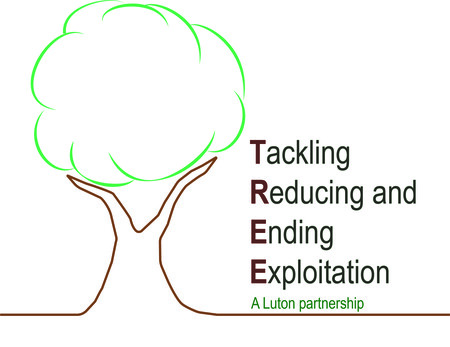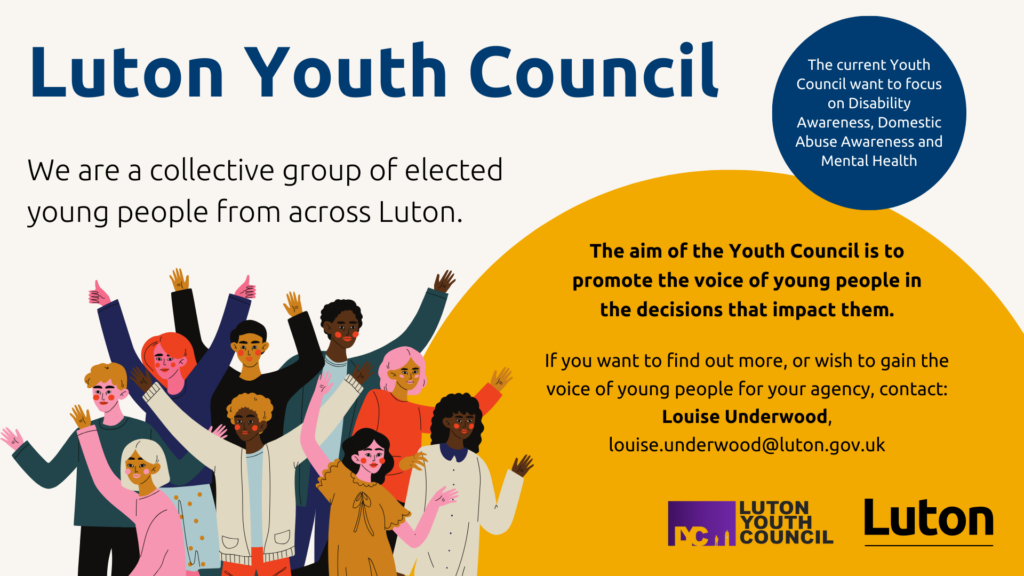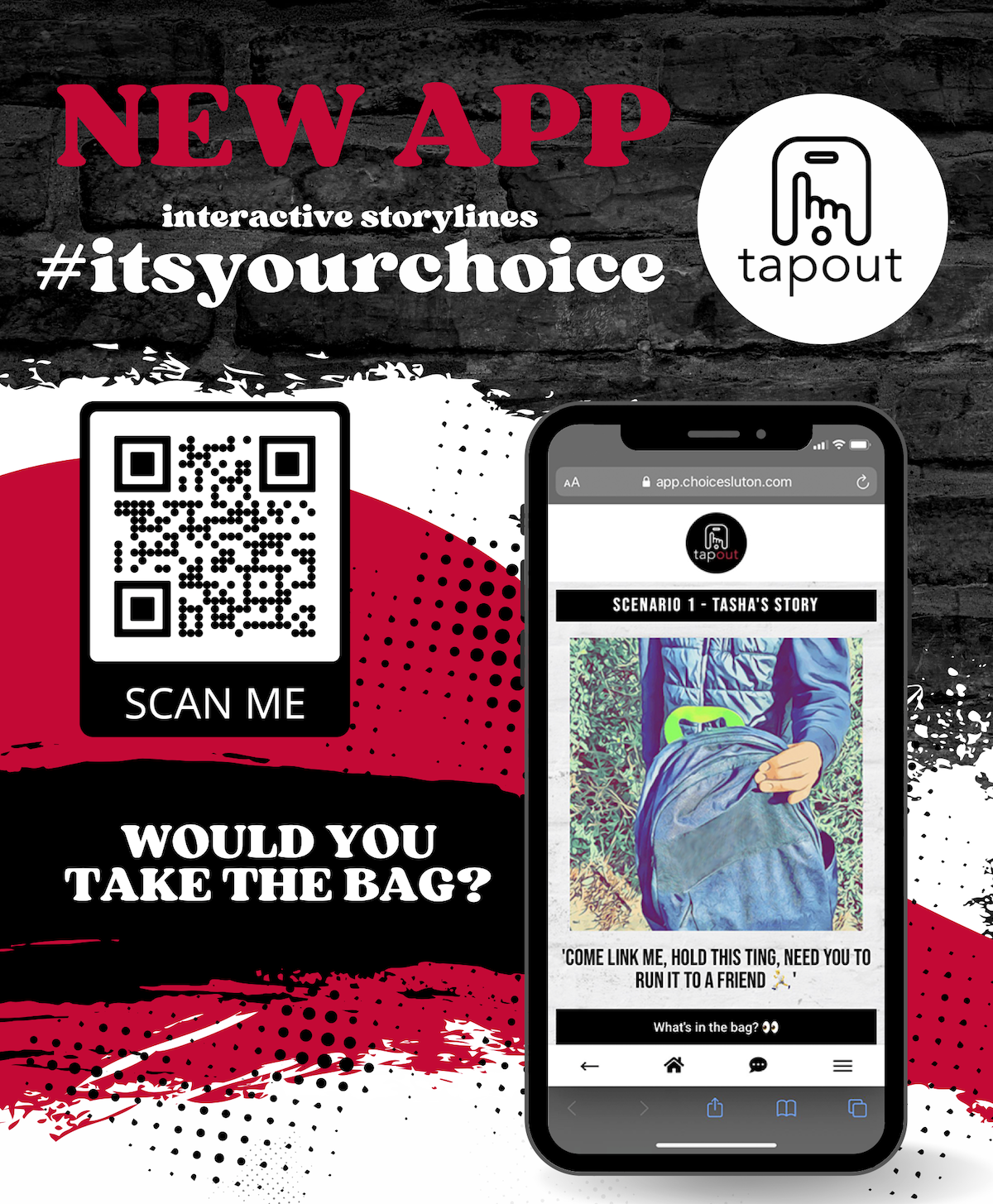You have been convicted of an offence and have a criminal record. However, this does not always affect your employment chances. Your YPS Officer will speak to you about how long this conviction stays with you and give you further information. If you have questions, please speak to your YPS Officer.
For Young People
Welcome to Our Dedicated Young People's Zone Exclusively Designed for You!

At the Youth Partnership Service, we are committed to supporting young people of all ages, and our dedicated Young People’s Zone is the perfect place for 10+ aged youth to find the support and guidance they need.
We have gathered a wealth of information in one convenient location, including details about our Youth Service, Mental Health Support team, and a range of fun activities and things to do.
If you’re in care, we also provide information to help you better understand your situation, including insights and advice from other young people in similar situations.
Be sure to follow us on Instagram at @lutonyouthpartnership for even more tips, advice, and local information. Explore our Young People’s Zone and discover the support and resources dedicated to helping you thrive. Scroll down to learn more!
What to expect if you're arrested
Being arrested can be a frightening experience, especially if it’s for the first time.
If the police arrest you, they will take you to the police station, to the custody suite. Children and young people are entitled to free independent advice, either from a lawyer of your choice if you know one, or, the police will call the duty solicitor.
It is important that you tell the police things that will help them to look after you, such as medication you’re taking or any health needs that you have.
The police must tell your parents, carer, or guardian/s if you have been arrested. They will ask for them to attend to support you. They will refer to your parents, carer, or guardian/s as acting as an ‘appropriate adult’.
In very exceptional circumstances, your parents, carer, or guardian/s may not be available and in this instance, Police will contact the Youth Partnership Service to come and stand in as your ‘appropriate adult’ and undertake the supportive role that a parent, carer, and/or guardian/s would usually do but on this occasion are unable too.
Your parents, carer, or guardian/s, (or in the exceptional circumstance of an appointed appropriate adult) will come to the station when you’re being held in custody. They will be there specifically to support you and be present during questioning and searching.
A police officer may carry out a search and take things away that could cause you harm. Unless personal items are considered evidence, these will be returned you.
If the police want to search you without your clothes, or if they want to take your DNA or fingerprints, your parents, carer, or guardian/s, or otherwise your appointed appropriate adult should be with you.
If not already provided, you are entitled to a blanket, food and water. If you are feeling stressed, you can ask to speak with your parents, carer, or guardian/s, or otherwise your appointed appropriate adult. In some cases there will be the availability of specific emotional health professionals such as Child and Adolescent Mental Health, and/or Liaison and Diversion.
The police will carry out an interview about the crimes that have led to your arrest. This is usually done using a tape recorder or sometimes, video recording.
Your parents, carer, or guardian/s, (or in the exceptional circumstance of an appointed appropriate adult) must be present and you should wait for your lawyer, even if you think it will mean you have to stay longer.
Conversations with lawyers are private and they will give advice based on the information and circumstances you discuss with them. Their advice will usually be to do one of three things during the police interview.
These are:
- answer police questions
- make a written statement
- offer no comment.
Once they have enough evidence, the police must stop interviewing and decide what to do next.
Depending on the offences, and whether it has been admitted during the interview, the police can take any of the actions below:
- Take no further action.
- Arrange a community resolution or a diversion. This is when you agree to make an apology and to stop getting into trouble. You may be asked to agree to take part in activities to support you, but you will not get a criminal record.
- Refer you to the Youth Partnership Service for an assessment, followed by a Youth Caution. You may be invited to take part in activities to support you. A Youth Caution is recorded and can be quoted if you get in trouble again.
- Refer you to the Youth Partnership Service for an assessment, followed by a Youth Conditional Caution. You will have to take part in activities to support you and keep you out of trouble. A Youth Conditional Caution is recorded, and if you don’t co-operate, you may be taken to court.
- Charge you with a criminal offence and send you to court.
If the offences are not admitted, the police can take no further action, or charge you with a criminal offence and send you to court.
If the police require further information or evidence, they can release you on bail. This means that you have to come back to the police station when they tell you to. They may also tell you to obey certain rules, which they call ‘bail requirements’.
If you do not obey them, you are committing a further offence and can go straight to court.
The police won’t hold anyone for more than 24 hours without charging them. (Under very exceptional circumstances where the crime is so serious, police can apply for an extension to time).
If they decide to press charges, the police can release you with bail requirements to attend court. They will provide documents that state when and where the court hearing will be and what conditions must be obeyed before then. For example, you might have to report to a police station or live at a particular place.
If certain legal conditions are met, they can refuse bail and keep you in police custody until the court can see you. This may mean staying in the police station or being transferred to be looked after by the local children’s social services. This is usually only for a day or so as most courts operate six days per week.
Referral Order Panel
Referral Orders give you a second chance of a non-criminal future, as the sentence is ‘spent’ at the end of the order, as long as you have kept to the terms of their contract. Referral Orders last from 3 months to 12 months and after the Court hearing, you will appear before a Referral Order Panel accompanied by your parent/carer.
A Referral Order Panel consists of two trained volunteers from the local community (volunteer Community Panel Members), alongside one member of the Service. The panel will meet with the young person, and their parents/carers, to talk about what happened and the impact of the actions on the victim/s or community.
Youth
Rehabilitation
Orders
A YRO is a community sentence within which a court may include one or more requirements designed to provide for punishment, protection of the public, reducing re-offending and reparation.
When imposing a YRO, the court must fix a period within which the requirements of the order are to be completed; this must not be more than three years from the date on which the order comes into effect.
The offence must be “serious enough” in order to impose a YRO, but it does not need to be an imprisonable offence. Even if an offence is deemed “serious enough” the court is not obliged to make a YRO.
The requirements included within the order (and the subsequent restriction on liberty) and the length of the order must be proportionate to the seriousness of the offence and suitable for the child or young person.
- activity requirement
- supervision requirement
- unpaid work requirement
- programme requirement
- attendance centre requirement
- prohibited activity requirement
- curfew requirement
- exclusion requirement
- electronic monitoring requirement
- residence requirement
- local authority accommodation requirement
- fostering requirement
- mental health requirement
- drug treatment requirement (with or without drug testing)
- intoxicating substance requirement
- education requirement; and
- intensive supervision and surveillance requirement
Turnaround

The overall aims of the Turnaround programme are to:
Achieve positive outcomes for children with the ultimate aim of preventing them going on to offend
Build on work already done to ensure all children on the cusp of the youth justice system are consistently offered a needs assessment and the opportunity for support
Improve the socio-emotional, mental health and wellbeing of children; and
Improve the integration and partnership working between youth justice services and other
statutory services to support children.
- Children aged 10-17 who fit one or more of the following criteria are eligible for Turnaround:
- Who are interviewed under caution following arrest or subject to a criminal investigation attending a voluntary interview
- Those who are subject to No Further Action (NFA) decision (including Outcome 22*)
- Those who are subject to a Community Resolution (Outcome 8*)
- Those receiving a first-time youth caution
- Released under investigation (RUI) or those subject to pre-charge bail (PCB)
- Those discharged by a court
- Those acquitted at court; and/or
- Those fined by a court.
*Outcome 8 and 22 are Home Office administration codes that the police use to indicate that no further action has been taken in response to an offence, but some form of diversionary or educational activity has taken place.
To ensure Turnaround meets its aim of early intervention, referrals must be made within three months of a child meeting the eligibility criteria.
Once a child has received support through the Turnaround programme, they are not eligible for support funded through the programme again. The Service may choose to continue to support a child following completion of a Turnaround intervention, however if re-referred, the child cannot be supported twice under Turnaround funding.
The child should be 17 or under at the point of referral onto the Programme.
Children referred to Turnaround are not eligible if they have an open plan with a package of co-ordinated multi-agency whole family support.
Children with multiple and/or complex needs may have support from several agencies and be an open case to Early Help/another existing multi-agency programme of support. Turnaround will not double-fund or duplicate existing support arrangements a child may already be receiving.
Triage is a process which involves a number of activities that are designed to enable the best outcomes for young people who come into contact with the Criminal Justice System (CJS) ensuring public protection and accountability. Diversion is where a young person may receive an alternative outcome that does not result in a criminal record, avoids escalation into the formal youth justice system, which can result in harm and stigmatisation. The triage and diversion process aims to ensure the identification and signposting to the most appropriate form of disposal based on risks and needs and this work in Luton has underpinned the year on year reduction of First Time Entrants to the CJS.
Every single young person that enters Police Custody receives a Triage assessment from the Youth Partnership Service (YPS), this is the absolute principle that underpins our commitment to the Triage process. This is not common across other youth justice services but in Luton this practice was driven by extensive analysis in 2017 following high number of first time entrants with serious offending previously unknown to the Service. This practice has been key to the year on year reduction in first time entrants in Luton.
Triage during office hours between 8.30am and 4.30pm Monday to Thursday and between 8.30am and 4pm on Friday are undertaken within the custody suite of Luton Police Station. Outside of these hours the triage assessments are completed within the young person’s home.
The YPS delivers support/voluntary intervention and/or signposting young people and their parents/carers into relevant services and ensure access to improved education and identifiable health needs. All support is proportionate, aimed at addressing unmet needs and supporting of prosocial life choices to avoid offending and exploitation.
The YPS operates a two tier system that distinguishes between those young people in need of diversion and those in need of early intervention/prevention. The process is underpinned by the following principles:
- Every young person that enters police custody or is part of an investigation will receive a Triage assessment irrespective of whether they are bailed to return or released under investigation.
- Triage also covers children or young people without a criminal record or first time detainees.
- A denial of offence may not preclude a child or young person from having a Triage assessment. However, it will preclude the offer of a diversion programme of intervention.
- Young people with frequent arrests, multiple NFA’s or engaged in ASB/low level offending will be signposted to the more appropriate Prevention/Early Intervention service.
- A PENY (Police Enforcement Notification to YPS) must always be obtained from the police at the point of initial arrest.
- Triage is a 24 hour provision also operating outside of office hours.
- All assessments should be completed within 10 working days.
- Resulting interventions will be a minimum of 8 weeks and a maximum of 12 weeks.
- Diversions will only be offered on one occasion unless there are extenuating circumstances (i.e. the young person has committed multiple offences in a short period of time and has not had the opportunity to benefit from YPS intervention)
There are 9 disposal outcomes depending on the circumstances of the offence:
- The young person could be charged or a summons issued to attend Court
- Released on bail or RUI (under investigation)
- Referral for a Youth Conditional Caution
- Referral for a Youth Caution
- Referral for a Youth Caution with Intervention
- Referral for Diversion
- Referral to the Drug & Deferral Scheme
- A Community Resolution
- No Further Action
There are referral pathways into assessment and services for all of the outcomes above in some shape or form other than Community Resolutions. In the case of a No Further Action or a Released on Bail or RUI outcome the YPS scrutiny panel may decide to work with the young person if deemed vulnerable to prevent further offending. In such cases the YPS may decide to work with the young person through a Prevention Intervention which does not require an admission of guilt.
The Tree Project

During the lockdown, our multi-agency contextual safeguarding processes identified a number of children were being reported as regularly missing from home or their placements. Many have vulnerabilities that make them targets for exploitation and some were already being criminal exploited to sell drugs, some are abusing drugs and alcohol and some are already victims of, or at risk, of sexual exploitation.
The Tree Project in Luton has been highly successful and the numbers of children and young people engaged in positive activities has been incredible. The visibility of the workers on the project saw a reduction in the usual community tension seen following an incident of violence and the community organisations who offered ongoing support and mentoring have continued to provide input.
Whilst the original funding was for 20 nights of action over the 5 month period, the Targeted Youth Service and Amber Unit had been further funded through core budgets and successful grant bids to continue delivery. Considering that Tree was originally conceived as a consequence of covid lockdown, its success and continued funding and development is hugely positive.
Given the specific concerns in hotspots areas of Luton, Tree developed to work with key strategic community partners in each area. This was highly successful given community organisations already had the confidence and ‘buy in’ of the community and Tree was able to financially support some smaller projects under the larger umbrella that perhaps would not have been funded otherwise. Projects have included accreditation that has led to further education placements for children and young people participating. Equally the concept and name of the Tree Project has been adopted by our neighbouring youth justice service.
Luton Youth Council



Youth Intervention

It's your choice. Control your story.
Jasmine, Tyriq and Hasan are all good friends; they all grew up together on the same estate in Luton, and went to the same high school – what choices are you making?

Tap Out App
Follow three characters as they navigate real-life decisions and issues including Youth Violence, drug use and exploitation.
@maryseacoleha Download the new interactive app, Tap Out. Available on the App Store and Google Play! 📱 #itsyourchoice ♬ original sound - Mary Seacole HA
Detention and Training Order

A Detention and Training Order (DTO) is a custodial sentence between 4 and 24 months decided by the Youth Court or Crown Court. A DTO is given to a young person when the offence committed is severe or the individual is a re-offender. The Courts will set the sentence length with the DTO split into two parts:
- You will spend up to half of your sentence in a Young Offenders Institution or Secure Unit. In some cases, you may be eligible for release before halfway through your sentence.
- You will be supervised within the community for the rest of your sentence.
When you are sentenced to a DTO, you will be held in the court cell area. Your family will not be able to visit you in court cells. However, a member of our service will visit you to explain your sentence and tell you what to expect. This is the time to discuss any worries you may have.
They will complete a Post Court Report, which gives information about you to the establishment where you will go. The Youth Partnership Service will inform you which establishment you will be sent to and inform your family members. There are three different establishments where your sentence can be served depending on your age. These are:
- Young Offenders Institutions (YOIs) – these are run by the prison service and take young people between 15-18.
- Secure Training Centres (STCs) are run by different organisations and usually take young prisoners or those considered vulnerable.
- Local Authority Secure Units – are run by different local authorities around the country and usually take young prisoners or those considered vulnerable. There are only a few people who visit this place.
You will be taken to a reception area where a staff member will speak with you and book you in. You will be given a prison number which you will keep throughout your stay at the facility. This number should be given to individuals you wish to contact. Any property you have will be taken from you, kept in a safe place and returned to you once you leave. You will then be shown to an induction wing.
This is probably where you will spend the first week or so and these wings will help you adjust to the organisation’s regime. You will also meet a worker, usually called your caseworker, who is responsible for you whilst you are in their care. You can talk to them about any worries or questions you have.
Throughout your sentence, you will be supported and visited by your Youth Partnership Service Officer. You can expect to be visited within the first few weeks of your sentence and regularly after that. During these visits, you, your caseworker, YPS Officer and your parents/carers will discuss a sentence plan that you will need to complete. This will include activities that focus on your education, health, behaviour and other needs. It will be reviewed and, depending on the length of your sentence, it will influence the decision about when you can be released. This is normally at the halfway point. However, if you are on an 8-month or more DTO, you may be able to be released early with a ‘TAG’ (electronic curfew) which your YPS Officer will explain in more detail.
It may be difficult to settle into the facility at first and each centre will have different rules which are generally quite strict. You will be told what they are but positive behaviour is usually rewarded. Bullying is unacceptable and punishable. If you experience bullying it is imperative to report this to your caseworker.
You will be allowed telephone and written contact with family and friends along with information regarding how often people can visit you. You will be able to buy toiletries and other items but this will be explained in more detail upon your arrival. Your family and friends will also be informed by the establishment of what they can send to you and when they can visit you. Prisoners have the right to fair and respectful treatment. You will have the opportunity for education, religious observance, exercise and recreation and employment.
You will be given a ‘release date’ which is the date you will be released to complete the rest of your sentence within the community. Before you leave you will be given a ‘licence’, which tells you what conditions are attached, what you have to do, and when your sentence will end.
You will continue to be supervised by the YPS for the remainder of your sentence. You will have to report to your officer on release day. Your licence conditions will be explained again and you will have to sign a Standards of Behaviour form. You will have regular contact with YPS via phone and in person. This part of the sentence is to help continue the efforts you have made whilst in custody and help you adjust back to life at home.
You must attend all your appointments and be on time. If you are unwell you will need to contact your doctor and get a certificate. You must keep your appointments and let your YPS Officer know where you live. If you move, you will have to inform them as soon as possible. If you do not do this you risk being returned to court. You can be sent back to custody for up to three months or until your sentence ends whichever is shorter.
Intensive Supervision and Surveillance
The Intensive Supervision and Surveillance Programme (ISSP) aims to deal with the most active juvenile offenders and those who commit the most serious crimes. The programme aims at:
- Reduce the frequency and seriousness of offending in the target group.
- Address the underlying needs of offenders, which give rise to offending, with a particular emphasis on education and training.
- Provide reassurance to communities through close surveillance backed by rigorous enforcement.
The ISSP is the most strict, non-custodial intervention available for young offenders. As its name suggests, it combines outstanding levels of community-based surveillance with a comprehensive and sustained focus on tackling factors contributing to offending behaviour.
Most young people will spend 6 months on ISSP. The most intensive supervision (25 hours per week) lasts for the first three months. Following this, monitoring will be reduced to a minimum of five hours per week.
Community Surveillance:
ISSP is based on community surveillance, ensuring offenders know their behaviour is closely monitored and bringing structure to their lives. The surveillance element also helps demonstrate to the community that these young people’s behaviour is monitored.









